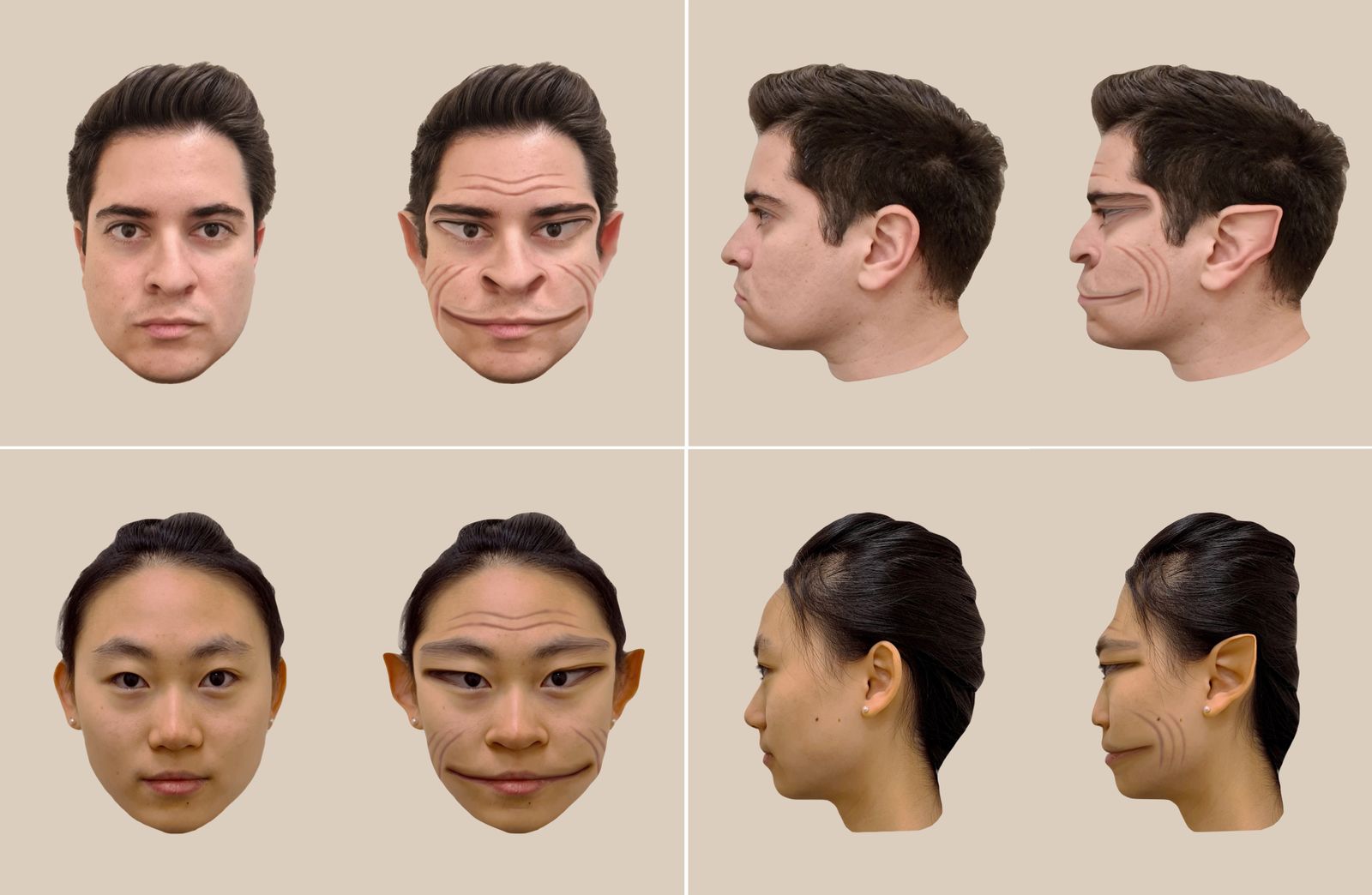One winter morning roughly three years ago, Victor Sharrah woke up and spotted his roommate walking to the bathroom. However, when Sharrah looked at his roommate’s face, he was startled to see that the man’s facial features had stretched to look like “something out of a Star Trek movie, like a demon face, the corners of his mouth and eyes were pulled back, his ears were pointy and he had deep grooves in his forehead.
Nothing had actually changed about his roommate’s face—but something had shifted drastically in the way Sharrah perceived it. He was, understandably, terrified. The same thing happened when he looked at other people’s faces, too.
Sharrah, who is now 59 and lives in Clarksville, Tennessee, was later diagnosed with prosopometamorphopsia, or PMO, an extremely rare neurological disorder that causes human faces to appear distorted. Fewer than 100 cases have been reported since 1904, and many doctors have never heard of it.
For many people, PMO symptoms disappear within a few days or weeks. But, for some, like Sharrah, they can persist for years.
It’s also not clear what causes PMO, though researchers suspect it results from issues in the parts of the brain that handle facial processing. Some patients have developed PMO after suffering a stroke, infection, tumor or some sort of head trauma, while others seem to develop the condition spontaneously, without any obvious explanation.



My wife is allergic to eggs. I love it, and it’s nice runny or fried. She doesn’t know what she’s missing because she’s never had one, so there’s just this blank card in her mind for the experience of a breakfast with eggs with pieces of descriptions she’s been given.
Have you ever looked at a collection of the same type of animal, like gray squirrels? They all kind of look the same because you’re not a squirrel and don’t intuitively have whatever they use to identify each other. This is how I feel towards most people unless I really try to notice what they’re wearing or how they do their hair, the way that they walk, or the sound of their voice. You learn, but it’s just not automatic. You have to put effort into it. You have something that gives you an ID tag for a person whereas I tend to see a person as something like: tall, probably male, blue shirt, short hair… and try to use context clues to figure out who I’m talking to without being rude.
I don’t know if a photo contains people I know usually because they’ve changed clothes and I can’t observe their mannerisms from a still image.
I think it’s really cool that you can look at a person and get a temporary ID of some sort injected into your awareness automatically. I can definitely see their faces and describe them objectively, but there’s no lookup table I just see face.
That is exactly how my friend describes his condition only he said people just look like sheep ,which they are. The hospital gave him a yellow shield lanyard and badge to wear when he was first diagnosed which read something like 'If I do not recognise you it is because I suffer from Prosopagnosia ’ He stills wears these on public transport because as he would put it " Nobody has a fuckin clue what Prosopagnosia is but they think I must be really ill so somebody usually gives me a seat "… ha ha